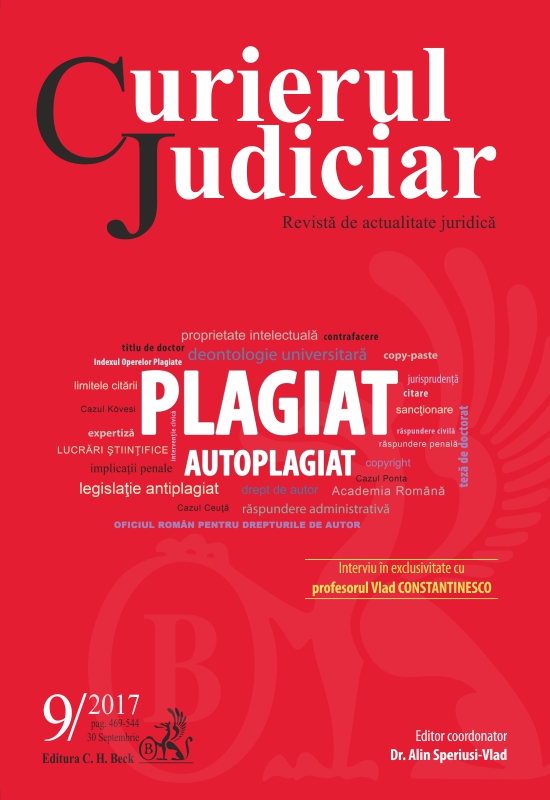O cercetare a plagiatului: implicațiile penale ale fenomenului
A study on plagiarism: criminal law consequences
Author(s): Lucian PoenaruSubject(s): Law, Constitution, Jurisprudence
Published by: C.H. Beck Publishing House - Romania
Keywords: plagiarism; the right of paternity in copyright; idea; misappropriation of authorship; fraud
Summary/Abstract: This article aims to verify to what extent a criminal liability for plagiarism can be envisaged in order to learn the usefulness of such a liability in this area of interest. The analysis commences by verifying some particular concepts in copyright based on the recent legal studies and continues with presenting the criminal implications of actions regarded as plagiarism either in the basic or legal understanding of the word. Regarding the concept of originality, such is related to the person creating the work and must be appreciated with respect to the shell revealing the personality of the author. This test of the originality must be applied to any intellectual creation, either in literature or science, even if the latter has standard content or wording. Thus, the originality concept should not be linked to the idea, but to the work itself. Moreover, copyright in original works should not be conditional on value or importance. The paper shows that original works will have to be all protected and for such protection the law was not interested in the quantity, the quality and the content of the work created. With regard to the concept of “idea”, the study shows that such represents an information which is not legally protected unless the holder proves that third parties are duly obliged not to disclosing the information, as part of an exclusive right. As a consequence, ideas should remain available to anyone and cannot be appropriated to oneself. When the idea is allured into the work the object of copyright protection is the work itself, which means that ideas do not leave the public domain and they never wear out. Considering the criminal liability for plagiarism, the paper shows that actions considered as plagiarism present criminal liability relevance only as copyright infringement or pure fraud. As such, art. 141 of Law no. 8/1996 protects by criminal means the right to be identified as the author of a work (the right of paternity) and the legal wording should be interpreted as such. If plagiarism does not refer to elements protected by copyright, criminal liability for copyright infringement will not be applicable. Finally, the article pinpoints that plagiarism can be considered fraud but only if the action itself was concretely related to the result, respectively to the deceit and to the damage caused by plagiarism. Thus, not all plagiarism is fraud and should be verified if the lay out in the work was made with the sheer purpose of cheating by presenting a false impression over the authorship of the work, if such deceit was made to obtain a benefit and if damage was caused.
Journal: Curierul judiciar
- Issue Year: 2017
- Issue No: 09
- Page Range: 499-510
- Page Count: 12
- Language: Romanian
- Content File-PDF

